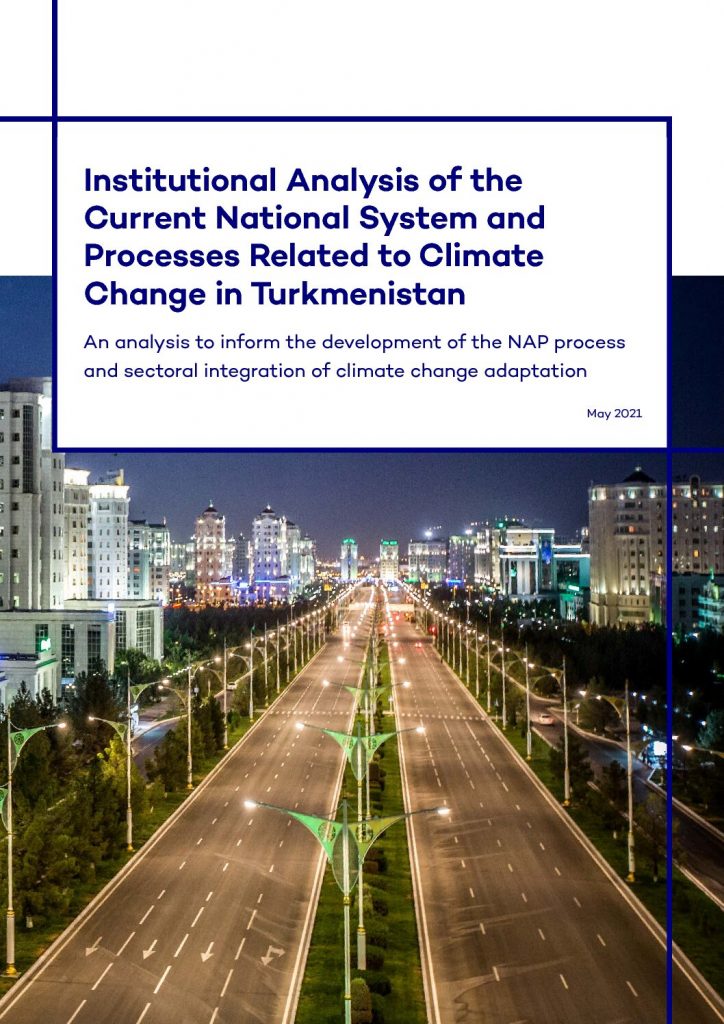
Institutional Analysis of the Current National System and Processes Related to Climate Change in Turkmenistan
An analysis to inform the development of the NAP processes and sectoral integration of climate change adaptation.
Available in Russian.
Climate change is significantly impacting Turkmenistan’s economy. The water and agriculture sectors, which the economy is reliant on, are highly vulnerable.
To reduce the vulnerability of the population and ecosystems, build resilience against climate change impacts, and address its medium- and long-term priorities for adaptation, Turkmenistan is implementing the National Adaptation Plan (NAP) process.
This report presents a thorough analysis of national institutional arrangements in Turkmenistan relating to climate adaptation in order to successfully continue the NAP process. This type of analysis makes it possible to identify key actors and possible entry points for meaningful sectoral integration.
In addition to key entry points, this report identifies existing channels and mechanisms that may help Turkmenistan to mainstream integrated adaptation planning in the water and agriculture sectors. It targets national and sectoral policies to inform decision makers and technical experts who are working (or will work) adaptation integration into their planning.
Related content:
- Infographic | Spectrum of approaches to initiating sectoral integration in the NAP process
- Webinar | Sector Integration in the NAP Process
- sNAPshot | Initiating Sector Integration of Adaptation Considerations
- Theme page | Sector Integration
Publisher: International Institute for Sustainable Development (IISD)